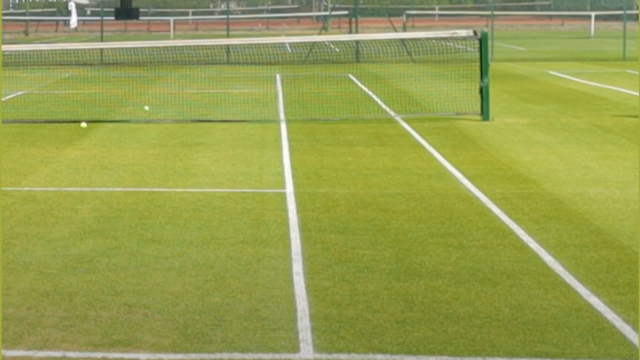The Lawn Tennis Association (LTA) in Great Britain has banned the participation of transgender women in most tournaments in the female category, concluding that allowing transgender women to participate in normal competition puts actual female players at a disadvantage.
Current LTA rules allow players to self-identify. Beginning in January 2025, however, trans women and non-binary individuals assigned male at birth will only be allowed to compete in the male category in specified competitions.
According to a statement on LTA’s website, the organizational ban only applies to events organized in Britain under the their jurisdiction.
It is clear that tennis and padel are gender-affected sports – the average man has an advantage when playing against the average woman. This includes longer levers with which to reach and hit the ball and increased cardio-vascular capacity means being able to get around the court more easily.
The current broad consensus, including the conclusion of the review carried out by the Sports Councils Equality Group, is that this advantage is likely to be retained to a significant degree in trans women, making competition potentially unfair.
Therefore, we have decided to draw a line in the competition structure to create two different designations of competition for the purposes of the Policy: Specified and Non-Specified.
Specified Competitions (above the line) will usually be those which are “inter” venue, i.e. involving individuals from different clubs or counties. Under our competition structure these are Graded 1-6.
Non-Specified Competitions (below the line) will usually be those which are “intra” venue, i.e. involving players from within one venue (which is everything below Grade 6).
We are changing our Policy to restrict trans women and non-binary individuals assigned male at birth from playing in the women’s category in Specified, inter-venue, competitions. These will be competitions ranging from our National Championships through to local county and district leagues, where the purpose is to provide fair competitive opportunities. This policy helps ensure there is a common national standard for all these competitions which is fair.
Tennis legend Martina Navratilova has been outspoken in defense of protecting women’s sports.
She wrote at Genspect, “Fairness has always been important to me. In fact, the reason I chose tennis—besides the fact that my family played it—is that it’s a fair sport. The ball is either in or it’s out.”
“Fairness was on my mind in 2018 when I inadvertently got swept up in the trans athletes-in-women’s-sports maelstrom with this tweet: ‘Clearly that can’t be right. You can’t just proclaim yourself a female and be able to compete against women.’”
“The female category was created to provide opportunities for women to compete fairly. It was always intended to exclude males. We need to keep excluding them.”
“I promised to educate myself, and I have. I plan to keep advocating for fair competitions—and equal rights—for female athletes. I hope you’ll join me.”
While LTA’s change is a step forward, the female category in recreational or in-club competitions remains open to males who wish to self-identify as female.









